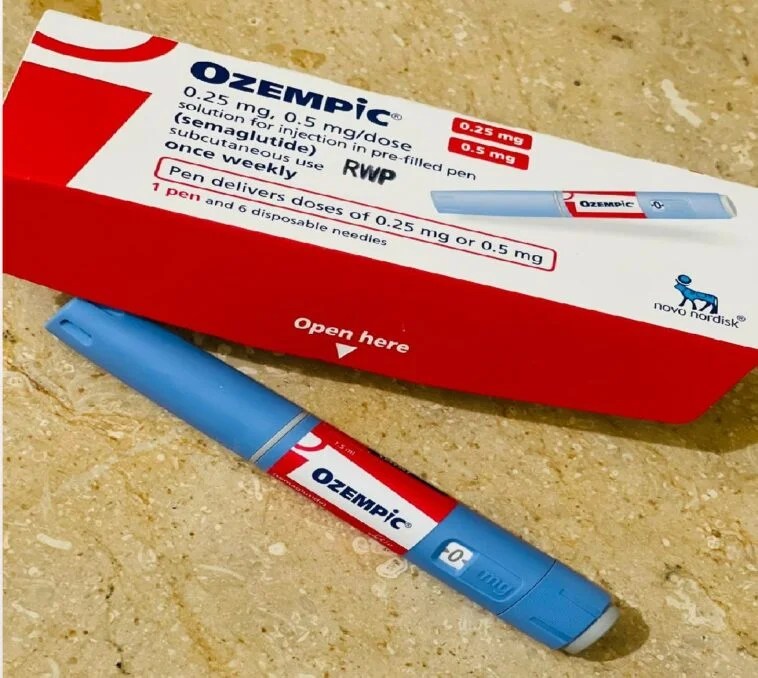Exploring The Intersection Of Lupus And Ozempic: Can Lupus Patients Take Ozempic?
Lupus is a complex autoimmune condition that affects millions of people worldwide, leading to a myriad of health challenges. For individuals living with lupus, managing their condition often requires a careful balance of medication, lifestyle changes, and regular medical check-ups. One medication that has gained attention in recent years is Ozempic, primarily used for managing type 2 diabetes. This raises an important question: can lupus patients take Ozempic safely without exacerbating their condition? Understanding the implications of combining lupus treatment with diabetes medication is crucial for ensuring optimal health and well-being. This article delves into the details surrounding lupus, the purpose of Ozempic, and the potential interactions and considerations for lupus patients considering this medication.
As the prevalence of diabetes increases among individuals with autoimmune diseases like lupus, the need for effective treatments becomes even more pressing. Ozempic, known generically as semaglutide, is a GLP-1 receptor agonist that aids in blood sugar control and has been associated with weight loss. However, the unique challenges posed by lupus necessitate a thorough examination of whether Ozempic is a suitable option for those with this condition. In this article, we will explore the potential benefits and risks associated with lupus patients taking Ozempic.
Through a comprehensive analysis of available research and expert opinions, we aim to provide clarity on this important topic. Whether you are a lupus patient seeking effective diabetes management or a caregiver looking for guidance, understanding the relationship between lupus and Ozempic is essential for informed decision-making.
What is Lupus?
Lupus, or systemic lupus erythematosus (SLE), is a chronic autoimmune disorder characterized by the immune system mistakenly attacking healthy tissues. This can lead to inflammation and damage in various organs, including the skin, joints, kidneys, and heart. Symptoms often vary widely among individuals but can include fatigue, joint pain, skin rashes, and fever. Due to its unpredictable nature, lupus requires a tailored treatment approach, often involving immunosuppressive medications, anti-inflammatory drugs, and lifestyle modifications.
What is Ozempic?
Ozempic (semaglutide) is an injectable prescription medication designed to improve blood sugar levels in adults with type 2 diabetes. It works by mimicking the action of a hormone called GLP-1, which stimulates insulin secretion when blood sugar is high and reduces the amount of glucose produced by the liver. Additionally, Ozempic can contribute to weight loss, making it an appealing option for individuals struggling with obesity alongside diabetes. However, like any medication, it comes with potential side effects and contraindications that need to be considered.
Can Lupus Patients Take Ozempic Safely?
The question of whether lupus patients can take Ozempic revolves around several factors, including the individual's overall health, the severity of their lupus, and any other medications they may be taking. It is crucial for lupus patients to consult their healthcare provider before starting Ozempic to assess potential risks and benefits. Here are some important considerations:
- Medication Interactions: Lupus patients often take immunosuppressive medications, which may interact with Ozempic.
- Autoimmune Response: Patients with lupus may experience altered immune responses when taking new medications.
- Kidney Health: Lupus can affect kidney function, and since Ozempic is processed through the kidneys, this is a critical consideration.
- Individual Response: Each lupus patient is unique, making it essential to monitor how they respond to any new medication.
What Are the Risks of Taking Ozempic for Lupus Patients?
While Ozempic can provide significant benefits in managing blood sugar levels, lupus patients should be aware of potential risks. Side effects associated with Ozempic include nausea, vomiting, diarrhea, and pancreatitis. Furthermore, patients with a history of thyroid tumors or pancreatitis may need to avoid Ozempic altogether. Consulting with a healthcare provider can help clarify whether the benefits outweigh the potential risks.
Are There Alternatives for Lupus Patients with Diabetes?
If Ozempic is deemed unsuitable for lupus patients, there are several alternatives for managing diabetes that may be considered. Some options include:
- Metformin: A commonly prescribed oral medication that helps control blood sugar levels.
- Insulin Therapy: For those with more severe diabetes, insulin injections may be necessary.
- Other GLP-1 Agonists: Medications similar to Ozempic, but with different safety profiles.
- Diet and Lifestyle Changes: Implementing a healthy diet and regular exercise can significantly enhance diabetes management.
What Do Experts Say About Ozempic and Lupus?
Healthcare professionals emphasize the importance of individualized treatment plans for lupus patients. According to experts, while Ozempic may offer benefits in blood sugar control, it is crucial to consider each patient’s unique circumstances. Regular monitoring and communication with healthcare providers can help ensure safe and effective management of both lupus and diabetes.
Conclusion: Can Lupus Patients Take Ozempic?
In conclusion, the question of whether lupus patients can take Ozempic is complex and multifaceted. While Ozempic may provide benefits for some, it is imperative for lupus patients to engage in open discussions with their healthcare providers to assess their individual health needs. As studies continue to evolve and new treatments emerge, staying informed will play a critical role in managing both lupus and diabetes effectively.
Unlocking The Power Of The Daily Rank Checker
Unveiling The Roots Of Oluremi Tinubu: Is She Really From Delta State?
Unveiling The Life Of Gena O'Kelley: A Journey Through Fame And Family


